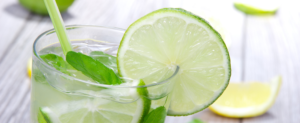Over 50% of Americans are trying to lose weight, and 17% of them are on some sort of special diet. These days diets like keto, paleo, and IIFYM (macros) are all the rage – and not just among health and fitness enthusiasts. By changing how people eat and bringing more awareness to what they eat, these diets aim to help people feel better in their bodies (no extra charge for the inadvertent weight loss!).
However, as with any diet, consumers need to find ways to meet their dietary needs. That’s where diet-specific beverages come in.
What is a Diet-Specific Beverage?
Many diets recommend reducing or limiting consumption of certain food groups and/or increasing consumption of others. It can be easier to keep track of these guidelines with food items, but what about beverages? Diet-specific beverages aim to fill this need for consumers who are seeking out drinks that adhere to their specific diet’s recommendations and complement their nutritional needs.
Low Carb, High Fat: Keto Drinks
Characterized by its ‘low in carbohydrates, high in fats, with moderate proteins’ approach, the ketogenic diet (often shortened to simply ‘keto) has been growing in popularity. This diet focuses on maintaining the body in a state of ketosis by burning fats instead of carbohydrates. With the global market for keto products expected to expand to 17.8 billion dollars by 2026, even companies like General Mills and PepsiCo that typically cater to mainstream consumers are getting in on this trend and launching products for consumers on the keto diet.
Keto-friendly beverages can be tricky to navigate. With the standard keto diet recommending only around 20 to 50 grams of carbohydrates per day, many common beverages like fresh fruit juices, sodas, and alcohol are out. Instead, consumers are looking for drinks that can boost their fat intake and add protein to their daily intake.
Bulletproof Coffee, for example, contains MCT oil to help keep the body in ketosis and grass-fed butter or ghee to contribute to daily fat intake. Unsweetened milk like whole dairy, almond, and soy are popular keto drinks.
Back-to-Basics: Paleo Beverages
The paleo diet takes food consumption back to basics, but it’s not just for cavemen! One of the most popular diets globally, the paleo diet focuses on eating much like our ancestors did during the Paleolithic era over 10,000 years ago. Experts predict the paleo market will surpass $17 billion by 2026, with ever more health-conscious consumers moving away from processed foods.
With an emphasis on eating lean meats and fresh fruits and vegetables and avoiding processed or farmed foods like dairy products and grain and legume products, people on paleo diets look for natural, preservative-free beverages. They also tend to seek out fruit and vegetable juices with pulp as a way to increase their fiber intake as well as up their levels of vitamins and minerals and fermented, non-dairy drinks like kombucha. Plain carbonated drinks are also recommended as a substitute for soda.
A Balancing Act: Macro Diet Drinks
Once limited to bodybuilding aficionados, the macro diet has recently gained popularity among amateur athletes, CrossFit enthusiasts, and the like. Also known as If It Fits Your Macros (IIFYM) or a flexible diet, macro diets focus on tracking macronutrients – carbohydrates, proteins, and fats. Tracking macros allows for more flexibility and is much less restrictive than some other diets because anything that fits within your macros can be consumed. The macro diet is also designed to take into consideration each individual’s needs like activity levels, fitness or weight goals, and lifestyle to calculate ideal ratios. There is no one-size-fits-all option!
Unlike other diets, the macro diet does not place restrictions on any particular food, food group, or drink, which means that just about any drink can be safely incorporated into the diet. Macro diet beverages may be formulated in such a way to help consumers reach their daily nutritional and dietary needs by acting as a source of healthy carbohydrates, proteins, and fats.
Cow’s milk and soy milk have high protein levels, while fruits and vegetables in their juiced form can contribute to daily tallies of carbohydrates. Ultimately, it can be a balancing act to keep track of the different macros!
Developing Diet-Specific Beverages
With more and more consumers turning towards diets like keto, paleo, and counting macros as a way of eating (and feeling) better, beverage companies would be remiss if they didn’t take advantage of these opportunities. Yet, the industry is becoming increasingly complex, and beverage formulation isn’t a walk in the park. With shifting consumer trends and a market brimming with innovation, it can be tough to know what will work and what will go the way of New Coke. Having an expert on your side can do wonders for your company in getting your beverage ideas to market quickly, with lower risks.
At WiseBev, we understand the beverage market; you can count on our expertise to help you develop a diet-specific beverage that will meet consumers’ needs and goals and taste good. Book a call with us today to see how our team can help you bring your beverage to market.







